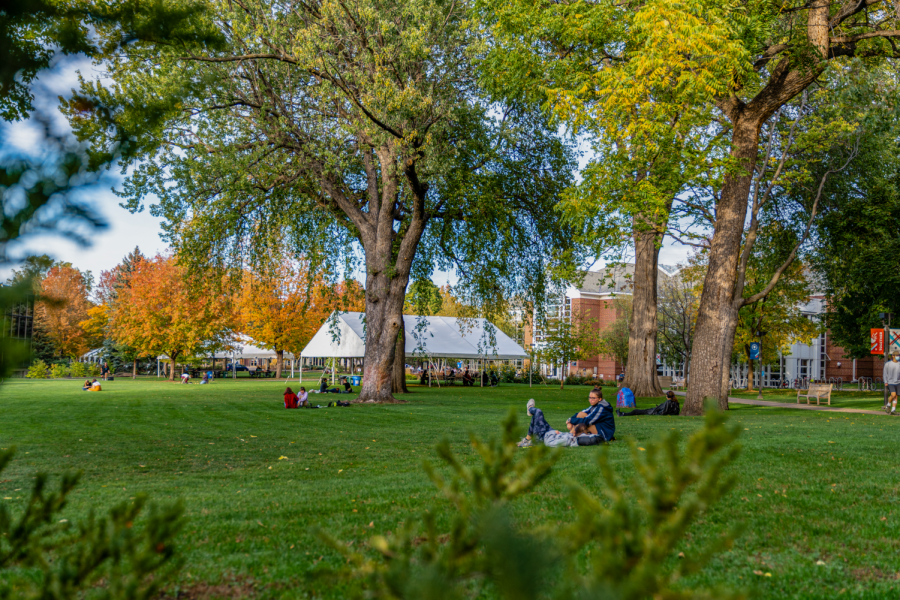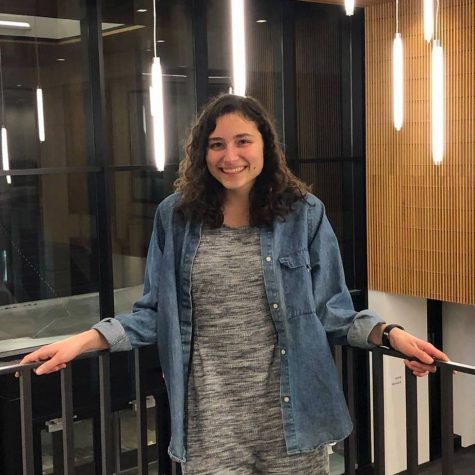New strategic planning process seeks community input
October 28, 2021
At the start of this school year, Macalester launched a new strategic planning process. The plan, slated to be completed next October, will serve as a blueprint for Macalester’s future decision making. Administrative leaders have opted to skip the traditional appointment of a planning committee and are instead starting with a broad outreach campaign to hear community input, a move that has brought both excitement and skepticism from community members.
Every few years, Macalester revisits its vision in the form of a strategic plan. These plans outline several years’ worth of long-term and short-term goals. Macalester’s most recent strategic plan was developed in 2015. With a new president joining the college, last year would have been the standard time for a new strategic plan, but the chaos of the COVID-19 pandemic pushed the process back.
“The demands of last year were really tactical and not strategic,” Macalester President Suzanne Rivera said. “We were really just figuring out how to operate the campus under those really challenging conditions, how to keep everybody as safe as possible, how to limit any interruptions to people’s progress toward degrees, and all of that was so challenging that we didn’t really have the slack in our day, or even mentally, to think more long term.
“Now that we’re returning to operating the campus in a more customary kind of way … we have a little bit more slack to think and plan for the future in ways that were not possible last year,” she continued.
Senior staff are beginning the strategic planning process with an unconventional first step: instead of asking a committee to start drafting a plan, Macalester is starting with a phase focused on getting feedback from the broader community.
Macalester does have a standing Strategic Planning and Analysis Committee (SPA) supporting the process, but the SPA doesn’t have any concrete role in shaping the strategic plan.
A major component of this is the selection of 14 to 16 “champions” — students, faculty, staff, alumni and parents who will meet with college administrators over the next few months to help shape the plan’s priorities. These champions will be tasked with hearing thoughts and feedback from their circles of Macalester community members and bringing that to the planning team.
Finn Odum* ’21, a former Macalester College Student Government (MCSG) representative who graduated last spring, is applying to the champion position hoping that it offers a chance to connect with administrators and improve campus life for students. Odum was on MCSG during the tumultuous 2020-21 school year. They recalled struggling through taxing events last year, including the deaths of two students, and wishing there were more resources available for struggling students.
“We had to sit in MCSG and cry and argue, and a grieving policy was written and sent to [the Educational Policy and Governance Committee], and I don’t think anything happened,” Odum said. “I guess the short version is, I want to apply because I tried everything I could to advocate at Macalester, and not a lot of it worked.”
The champion position is presented as a chance to interact with senior leaders and help shape Macalester’s next several years; Odum wants to make sure that process and future decisions center students’ needs.
Champion applications were due on Oct. 25. Senior staff will spend the next few weeks selecting champions, and those selected will start their work with a kickoff meeting on Nov. 19.
Administrators involved in strategic planning are asking for feedback in several other places, including at Big Questions events, an open strategic planning email address and through the strategic planning website.
Macalester’s senior staff have high hopes for the planning process. It’s starting during a time of change at the college, between the pandemic and the departure of many senior administrators in the last few months.
Rivera believes this is a chance to address some of the most common feedback she hears from students. Amid both the COVID-19 pandemic and increased national attention to racism and the Black Lives Matter movement, the last year has been marked by student demands to rethink mental health support and confront racism at the college.
“I’m hearing loud and clear from people that this feels like a place in which some folks feel more of a sense of belonging than others,” she said. “I’m always thinking about how we can be improving what we do, improving the campus culture to make it more inclusive.”
Provost Lisa Anderson-Levy, who is co-leading the planning process with Rivera, is currently focused on listening to community input, but she doesn’t think anything is off-limits to changing with this strategic plan.
“From my perspective, all existing practices and structures are on the table to be re-imagined,” Anderson-Levy wrote in an email to The Mac Weekly. “While this of course does not mean that everything will be changed, I believe we must take a wide view and be open to questioning who we are and how we do what we do.”
With multiple platforms and opportunities for communication between strategic planning champions and members of the Macalester community, Rivera aims to collect as much feedback as possible in order to identify what to maintain and to strengthen new areas.
However, some Macalester faculty are concerned over the process’s deviation from usual strategic planning models. Some worry about the lack of clarity on the community involvement component, particularly where their input will go once it’s heard by champions and passed onto senior staff.
David Shuman, an associate math, statistics and computer science professor and member of the SPA, agreed that the process is a bit unusual, with no committee involved in the actual drafting of the plan.
“What’s unknown to me — and I can see where the skepticism is coming from — is, how is that going to be used to actually get to a strategic plan?” Shuman said. “It’s just a matter of how that’s going to be weighted … and who’s going to be in the room when those final decisions are made.”
Finances are also a major consideration of the strategic planning process. SPA created a financial model overview outlining Macalester’s main sources of revenue and expenses to help those interested in gaining a deeper understanding of the school’s finances and pitching in on strategic planning. The SPA hoped to keep the document brief and readable.
“When we settle down with it, there’s no way to get it on one page [that is] easily digestible [and can be read in] five minutes,” Shuman said.
To supplement that information, the college held two virtual meetings explaining the financial model on Oct. 27 and 28. There was also an in-person meeting for students on Oct. 28.
The school will need to consider financial feasibility in its strategic planning initiatives. Members of the Macalester community are beginning to share their hopes for the planning process and changes that they would like to see made, but Shuman explained that in some instances, Macalester’s budget may complicate the execution of the strategic plan objectives.
“We’re just trying to survive … and make sure that we can do as much educating students and meeting our mission and keeping our goals and serving society and making Macalester accessible and still get by,” Shuman said.
Rivera and the rest of the planning leadership hope to present an outline of Macalester’s main priorities to the board of trustees next May. Next summer, senior staff will workshop those ideas and flesh out the concrete goals supporting those main priorities. The community will have another chance to comment on the plan before it goes to the board of trustees for final approval next October.
Rivera hopes that community members will take the opportunity to pitch in on the plan.
“It is easier to kind of sit on the sidelines and be critical of things that one doesn’t like; it is harder and requires more effort to roll up your sleeves and get involved,” Rivera said. “What we’re trying to create here is an opportunity for everyone to feel a sense of ownership in terms of charting a path to Mac’s future.”
The new model of strategic planning, Rivera says, has the potential to create a more inclusive and transparent process. Odum hopes that feedback from champions and students is seriously taken into account.
“I’m glad that something like this is happening where they’re actively trying to get students and alumni involved,” Odum said. “I’m really hopeful that … this will produce a better relationship between admin and the students.”
*Finn Odum ’21 was a staff writer for The Mac Weekly.














